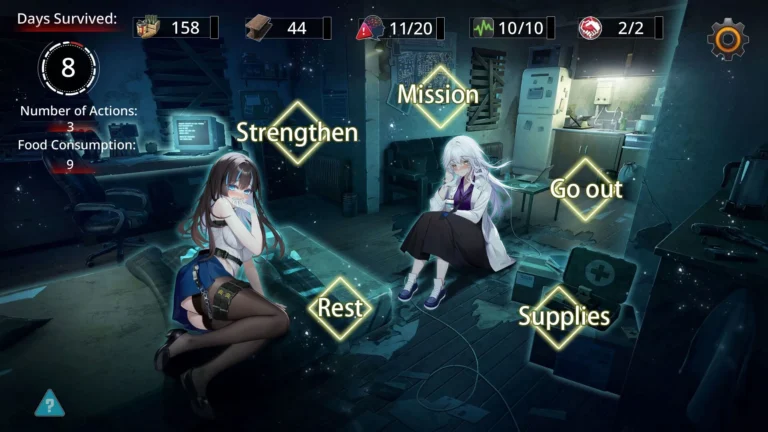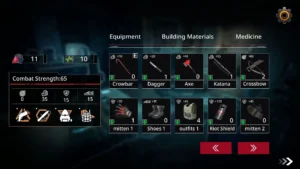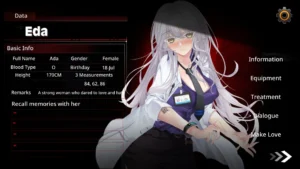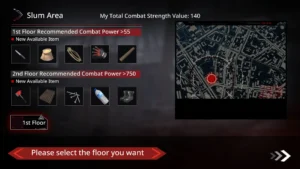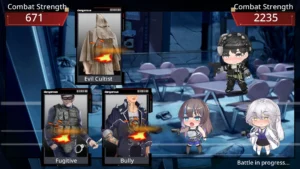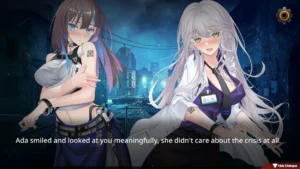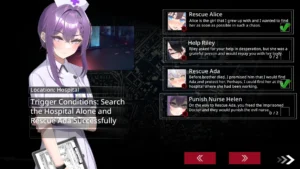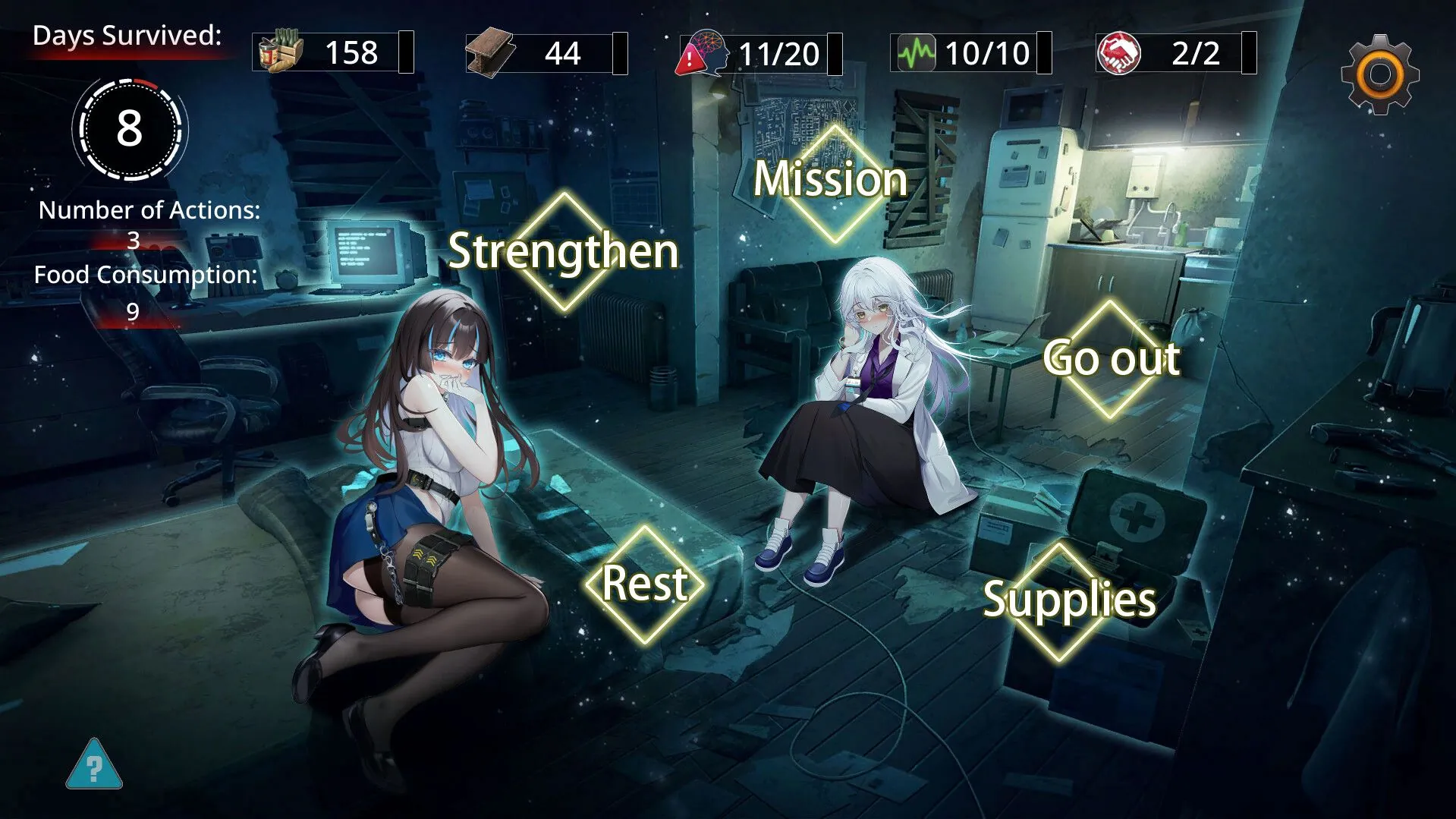
Fatal Countdown – immoral List of Desires review
Explore the immersive survival simulation and story of Fatal Countdown – immoral List of Desires
Fatal Countdown – immoral List of Desires is a survival simulation game developed by Secret Garden and published by Playmeow. Released in April 2024, this game immerses players in a post-apocalyptic city where a mysterious virus has wiped out law enforcement and societal order. Players navigate through a world filled with danger, moral dilemmas, and complex character interactions. This article dives deep into the game’s storyline, gameplay mechanics, and unique features to provide a comprehensive understanding of what makes Fatal Countdown – immoral List of Desires a compelling experience.
Understanding the Story and Setting of Fatal Countdown – immoral List of Desires
Picture this: you’re scrolling through your game library, tired of the same old shoot-em-ups and fantasy RPGs, when suddenly you stumble upon something that makes you pause. That’s exactly what happened to me with Fatal Countdown – immoral List of Desires. I was drawn in by the haunting title and stayed for one of the most gripping narratives I’ve experienced in gaming. 😮 This isn’t just another survival game – it’s a deep dive into human nature when society’s walls come crashing down.
The Fatal Countdown story begins with a simple, terrifying premise that hooked me from the first minute. What if the rules that hold our world together suddenly vanished? This game answers that question in the most visceral way possible, making you the protagonist in a collapsing world. Let’s peel back the layers of this incredible experience. 🕵️♂️
What is the premise of the game?
At its core, Fatal Countdown – immoral List of Desires drops you into a modern city on the brink of annihilation. A mysterious, fast-acting virus has begun spreading, but this isn’t your typical zombie apocalypse scenario. The real horror isn’t the illness itself, but what it does to society’s fabric. 🦠
I remember starting my first playthrough, thinking I understood what to expect. Boy, was I wrong. The immoral List of Desires narrative unfolds as the virus causes something far more sinister than physical symptoms – it triggers the complete breakdown of social order. Police vanish, governments collapse, and you’re left in a city where the only law is whatever you can enforce yourself.
Here’s a quick timeline of how events spiral out of control in this virus outbreak game setting:
| Time Period | Key Event | Impact on Game World |
|---|---|---|
| Day 1-3 | Initial outbreak reported | Confusion, some looting, emergency services strained |
| Day 4-7 | Mass disappearances of authorities | Complete power vacuum, formation of survivor groups |
| Week 2+ | Sustained chaos | Territorial disputes, moral dilemmas become central |
The brilliance of this post-apocalyptic survival game lies in how ordinary the world feels at first. You’re not some super-soldier or chosen one – you’re just someone trying to survive. I found myself making choices I never thought I would, like hoarding medicine while my virtual neighbors suffered. That’s when I realized this game was something special. 💡
How does the virus outbreak impact the city?
The virus outbreak game setting transforms the urban landscape in ways that genuinely surprised me. During my second playthrough, I decided to map the changes systematically, and what I discovered was incredible design work. The city doesn’t just become dangerous – it evolves into a character itself, reflecting the desires theme game at every turn. 🏙️→💀
Infrastructure collapses in realistic stages. First, the power grid becomes unreliable, plunging districts into darkness. Then, water systems fail, creating desperate scrambles for basic resources. What hit me hardest was watching familiar places – the corner store where I’d gathered supplies, the apartment building where friendly NPCs lived – transform into fortified strongholds or burned-out ruins.
Pro Tip: Pay close attention to environmental storytelling! The decaying city hides clues about what really caused the outbreak and how different factions responded.
The game story impact here is profound. As resources dwindle, you’ll witness previously civilized people turning on each other in shocking ways. I still remember encountering a group that had taken over a supermarket – they weren’t monsters, just ordinary people who’d decided their survival justified any action. This post-apocalyptic survival game masterfully shows how quickly civilization can unravel when fear takes over. 😥
Here’s what makes the environmental storytelling so effective:
* Dynamic decay – The city deteriorates based on your choices and the passage of time
* Faction territories – Different areas develop unique cultures based on who controls them
* Resource scarcity – Empty shelves and looted buildings constantly remind you of the stakes
What role do desires and morality play in the narrative?
This is where Fatal Countdown – immoral List of Desires truly separates itself from other games. The moral choices in Fatal Countdown aren’t simple good/evil binaries – they’re messy, complicated decisions that will have you questioning your own values. I’ve never played a game that made me feel so conflicted about my virtual actions. 🤯
The desires theme game explores what happens when societal constraints disappear and raw human nature emerges. Do you help a starving family when it means your own group goes hungry? Do you eliminate a rival faction preemptively because they might threaten you later? These aren’t theoretical questions – they’re gameplay mechanics that directly shape your experience.
During one particularly memorable session, I had to choose between saving a doctor who could develop a cure or rescuing a group of children trapped in a collapsing building. I sat there for ten real-world minutes just staring at the screen. That’s the power of the immoral List of Desires narrative – it makes the abstract terrifyingly personal.
The game story impact of your moral decisions manifests in several key ways:
* Character relationships – NPCs remember your choices and treat you accordingly
* Ending variations – There are multiple endings based on your moral alignment
* Gameplay consequences – Merciful choices might leave you under-resourced, while ruthless ones might make you powerful but isolated
What’s brilliant about the moral choices in Fatal Countdown is that there are rarely “right” answers. I’ve replayed sections multiple times trying different approaches, and each path felt valid in its own way. The game understands that survival often exists in moral gray areas. 🌫️
The Fatal Countdown story stays with you long after you’ve put down the controller. I found myself thinking about my in-game decisions during my daily life, wondering how I’d react in similar situations. That level of engagement is rare in gaming, and it’s what makes this experience so special.
Whether you’re a veteran of survival games or new to the genre, Fatal Countdown – immoral List of Desires offers something truly unique. It’s not just about surviving the outbreak – it’s about discovering what you’re willing to become to see tomorrow. And in today’s world, that question feels more relevant than ever. 🔥
Fatal Countdown – immoral List of Desires offers a rich narrative set in a gripping post-apocalyptic world, combined with engaging survival simulation gameplay. Its unique mechanics, such as the Insanity parameter and Full CG mode, provide players with a personalized and immersive experience. The game’s accessibility features and availability on multiple platforms make it approachable for a wide audience. Whether you enjoy deep storylines or strategic gameplay, Fatal Countdown delivers an intense and memorable journey. Dive into the game today and explore the complex desires that shape this chaotic world.
